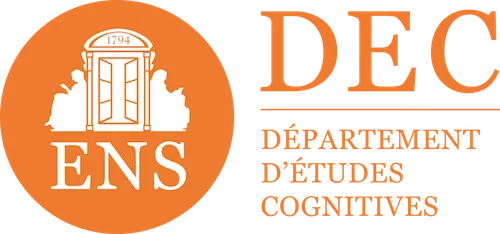

LMS, AI and cognitive sciences, the winning e-learning jackpot
In the business world, e-learning is no longer a simple “nice-to-have”. Today, concrete results are needed: a measurable ROI and a real increase in skills. No more mass production of e-learning content without a strategy. It is crucial to rely on robust and effective solutions.
This is where our top trio comes in: a powerful LMS, AI, and cognitive science. This technological and scientific marriage offers a powerful response to the current needs of businesses. So how can this trio transform your corporate training strategy?
Spoiler alert: it's not magic. Thanks to intelligent LMSs, AIs that can not only personalize training paths but also automate and accelerate their design, and approaches based on cognitive science, businesses can boost their competitiveness and maximize their ROI.
Welcome to the era of e-learning 3.0, where technology and science combine for tangible and measurable results. Ready to find out how? Let's go!
1. The LMS: the structural basis of efficient e-learning
To guarantee tangible results in e-learning, as for a house, the foundations must be solid. A powerful LMS (Learning Management System, your e-learning platform) is essential for effectively structuring and managing training courses. Today, the LMS no longer only stores content; it orchestrates the entire learning process, offering visibility and total control to training managers. Design, distribution, administration of e-learning, everything goes through him!
Learner management and follow-up
A well-designed LMS allows for smooth user and content management. It tracks learners' progress, offering detailed reports and performance analyses. For example, the LMS Didask facilitates the creation of personalized journeys while providing accurate data on The commitment and learner performance.
Personalization and accessibility
Businesses are looking for solutions that can be adapted to their specific needs. A good LMS is distinguished by its ability to personalize training paths depending on the skills to be developed and the objectives to be achieved. At Didask, this personalization is made possible thanks to educational AI, which continuously adjusts the content and activities offered according to the progress of each learner. Here we are touching on the famous subject of adative learning, which we discuss in more detail in our article. Adaptive Learning: The Eldorado of Commitment if you want to deepen this concept.
Ease of use and R.O.I.
Ease of use is a crucial criterion to ensure the adoption and effectiveness of an LMS. An intuitive interface and well-thought-out features reduce training time and increase user engagement. An effective LMS must be intuitive, allowing companies to quickly and effectively deploy their training programs, thus maximizing their ROI.
In summary, a powerful LMS is therefore much more than a simple management tool; it is the backbone of any effective training strategy. With advanced features like those offered by Didask, businesses can truly maximize their ROI and remain competitive in a constantly changing market.
2. Artificial intelligence: the lever for tangible results
You've already seen it: AI is transforming the e-learning landscape, offering unprecedented opportunities for businesses that want to maximize their ROI. Thanks to AI, LMSs are becoming... smarter, of course, but also more effective and above all, more aligned with the specific needs of learners and organizations.
Automation and accessibility
AI plays a crucial role in automating training paths, thus allowing faster and more accessible content design. For example, AI algorithms can analyze vast amounts of data to identify missing skills and suggest appropriate training modules. This allows businesses to deploy training programs more quickly and in a more targeted manner, reducing the costs and time required to implement them.
Fast creation of training modules
Above all, AI makes it possible to quickly and easily create training modules based on existing corporate content. Thanks to this technology, in The LMS Didask, anyone in the company, even without pedagogical prerequisites, can transform documents, presentations or reports in interactive and engaging training courses. This democratization of content creation makes it possible to quickly respond to training needs and to update modules in real time.
Customizing training paths
One of the major advantages of AI is its ability to personalize training paths. By analyzing learners' interactions with the LMS, AI can adapt content and activities in real time, based on individual needs. This guarantees a more engaging learning experience and more effective.
For example, the Didask LMS uses its educational AI to provide personalized coaching for employees, as if everyone had their own particular trainer at their side.
Analysis of progress and personalized feedback
AI also allows for a detailed analysis of learners' progress. It can provide personalized feedback in real time, helping learners correct mistakes and progress more quickly. This is what we find, for example, in the corrected activities proposed by Didask, where the AI acts as a mentor. This approach not only enhances the learning experience but also increases the overall effectiveness of the training program.
Practical applications and business impact
Businesses that adopt LMS that incorporate AI are seeing significant improvements in performance and productivity. AI is not only another technological tool, but a real lever to boost the ROI and competitiveness of your company. By integrating AI into your LMS, as Didask does, you can not only automate and personalize training courses but also provide tangible and measurable results for your business.

3. Cognitive science: the foundation of educational effectiveness
For training courses to be truly effective and produce measurable results, it is essential to rely on Cognitive science research recommendations, which until now were sometimes complicated to implement. However, by combining these scientific inputs with advanced technologies, businesses can design training programs that really make a difference.
What are the key principles from cognitive science?
Cognitive science provides valuable insights into how humans learn, remember, and apply information, which the Didask LMS integrates to create learning paths that don't just inform, but that truly transform learners' skills. Overview of the main principles.
- Unleash the potential of feedback
Immediate feedback is essential for effective learning. By providing real-time feedback, learners can correct mistakes and strengthen their skills more quickly. The Didask LMS has always implemented this approach, based on studies showing that learning by trial and error, combined with immediate feedback, significantly improves information retention. More details are available in our article Learning by trial and error: unleash the potential of feedback.
- Combating mental overload
Mental overload is a powerful enemy of learning. When employees are overwhelmed with information, their ability to retain and apply that knowledge decreases. The Didask LMS uses “microlearning” and content organization techniques to avoid cognitive overload and ensure more effective learning. This topic is explored in detail in our article. Mental overload: the enemy of learning.
- Integrate desirable difficulties for sustainable learning
Another key concept in cognitive science is that of “desirable difficulties.” These challenges, when well integrated into the learning process, help to strengthen knowledge retention and application. The challenge is to find the right level of difficulty for everyone, which is what the Didask LMS does in its activities which, although challenging, are calibrated to improve the sustainability of learning. You can explore this concept in the article Desirable difficulties: for sustainable learning.
- Reconciling efficiency and well-being at work
It is also crucial to reconcile educational effectiveness and well-being at work. Learning paths should be designed to minimize stress and maximize learner engagement and motivation. The Didask LMS takes these aspects into account to provide a balanced and productive learning experience. To go further on this topic, read our article Reconciling efficiency and well-being at work through cognitive science.
Benefits for learning effectiveness and ROI
The application of cognitive sciences to training makes it possible to obtain concrete and measurable results. This means that employees are not only better trained, but they can also apply what they have learned more effectively in their daily work, increasing productivity and the quality of their work. It is by combining these principles with an AI that the latter truly becomes an educational AI like that of the LMS Didask. Cognitive sciences are therefore no longer abstract theories, but powerful tools to improve educational effectiveness and the return on investment of corporate training.
4. The alliance of the 3 pillars: towards optimal corporate training
Synergy between LMS, AI and cognitive sciences
The integration of a powerful LMS, AI and cognitive sciences creates a powerful synergy that optimizes corporate learning. The LMS provides the structure needed to manage content and monitor learners' progress. AI personalizes learning paths and automates tasks, while cognitive science ensures that learning methods are based on solid research, maximizing knowledge retention and application.
How do these elements complement and reinforce each other?
AI and cognitive sciences complement each other perfectly to personalize and enrich training paths. For example, educational AI uses cognitive science principles to adapt content in real time, according to learners' progress and needs. By integrating these technologies, the Didask LMS makes it possible to create interactive and engaging learning experiences, while providing detailed analytics to continuously improve training programs.
Practical cases and observed results
Many businesses have already seen the benefits of this integrated approach. Take for example Pellenc, a manufacturer of agricultural equipment, who adopted the Didask LMS. By customizing the training courses and using the analyses provided by the LMS, this company has succeeded in significantly improving the effectiveness of its internal training but also that of its customers.
This is also the case of the CFPC (the training center for the accounting profession) which, thanks to Didask's educational AI, was able to produce more than 150 hours of e-learning in less than 3 months, with a very strong impact on the ground with 96% of satisfied participants who recommend our courses.
Conclusion
Integrating a powerful LMS, AI and cognitive science is like hitting the jackpot for companies that want to maximize the effectiveness of their training programs. By combining these 3 elements, you get personalized, engaging and scientifically proven training courses that are scientifically proven to be effective: the jackpot!
The Didask LMS stands out from the market by integrating these technologies to offer concrete results: improved knowledge retention, increased productivity and optimized return on investment. By adopting this approach, businesses can not only strengthen the skills of their employees, but also boost their competitiveness in the market.
In short, the combination of AI, cognitive science, and an advanced LMS is the key to effective and profitable corporate training. Investing in these technologies is, dare we say, largely guaranteeing a prosperous and competitive future for your organization.
Ready to transform your training strategy? Find out how Didask can help you by booking your demo.
To learn more about LMS, you can also read our articles:
- How to set up your LMS in 10 steps
- How to change LMS... without a gas factory!
- LMS, LXP, LCMS, authoring tool... How do you choose your learning equipment?
- The great history of e-learning platforms
- LMS: 3 prejudices to bury once and for all
- Learning Management System: Optimization for Businesses
- LMS: how to use it in Professional Training?
- LMS UX: It's time to take designers into account!
- In eLearning, how to improve the engagement of your LMS
Make an appointment directly with our eLearning experts for a demo or simply more information.












